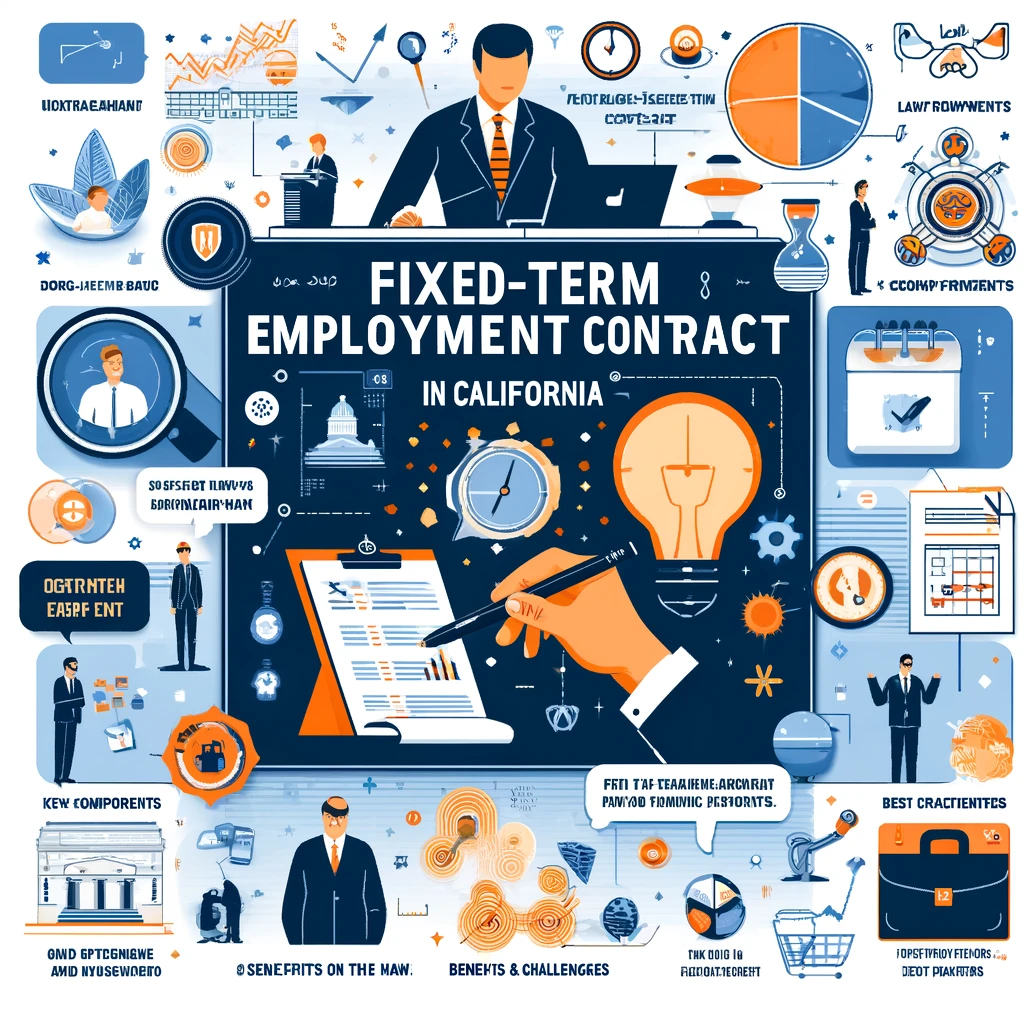Navigating Fixed-Term Employment Contracts in California: A Complete Guide
In California, fixed-term employment contracts specify a predetermined end date for an employee's tenure at a company. Unlike at-will employment, which allows either party to terminate the employment relationship at any time, fixed-term contracts offer both employers and employees a sense of security and predictability. However, navigating the complexities of such agreements requires a deep understanding of California's employment laws to ensure compliance and protect the interests of both parties. This guide explores the essentials of fixed-term employment contracts in California, highlighting legal considerations, benefits, challenges, and best practices for drafting these agreements.

Understanding Fixed-Term Employment Contracts
Fixed-term employment contracts are legally binding agreements that set the duration of employment to a specific period. These contracts are commonly used for project-based work, seasonal positions, or to fill temporary absences.
Legal Framework in California
The enforceability and provisions of fixed-term employment contracts in California are governed by state employment laws and regulations. The California Labor Code and case law establish the parameters within which these contracts operate, including their formation, execution, and termination.
For a foundational understanding of employment laws in California, resources available through the California Department of Industrial Relations (DIR) website and the California Courts provide comprehensive insights.
Benefits and Challenges of Fixed-Term Contracts
Benefits for Employers and Employees
Fixed-term contracts offer employers the flexibility to hire talent for specific needs without long-term commitment, while employees benefit from clear terms of employment and job security for the contract duration.
Challenges
The main challenge lies in ensuring that contracts are drafted to comply with California laws, avoiding unintended conversion to at-will employment or facing penalties for wrongful termination.
Key Components of a Fixed-Term Employment Contract
A well-drafted fixed-term employment contract in California should include several essential elements:
Duration of Employment: Clearly specify the start and end dates of the employment period.
Roles and Responsibilities: Outline the employee's duties and expectations.
Compensation and Benefits: Detail the salary, bonuses, and any benefits provided.
Termination Conditions: Define conditions under which the contract can be terminated before the end date, including any notice requirements and severance arrangements.
Dispute Resolution: Establish procedures for resolving disputes arising from the contract.
Educational resources on contract law, such as those provided by the University of California, can offer valuable guidance on crafting effective employment agreements.
Legal Considerations for Employers
When implementing fixed-term employment contracts, employers must navigate several legal considerations:
Compliance with Wage and Hour Laws: Ensure the contract adheres to California's minimum wage, overtime, and meal/rest break laws.
Avoiding Implied Contracts: Clearly communicate that the employment is for a fixed term to prevent implied ongoing employment rights.
Renewal and Conversion to At-Will Employment: Understand the implications of contract renewal and how to manage the transition if employment continues beyond the fixed term.
Best Practices for Drafting Fixed-Term Contracts
Consult with Legal Experts: Engage legal counsel to ensure contracts are compliant with California law and tailored to the specific employment scenario.
Transparency and Clarity: Use clear language to outline all terms and conditions, avoiding ambiguity that could lead to disputes.
Regular Review: Periodically review and update contracts to reflect any changes in the law or organizational needs.

Create & Review Your Contracts 10x Quality and Ease
Lawyer-level AI handles all your contract needs, with real lawyers providing safeguarding support

Conclusion
Fixed-term employment contracts can be a valuable tool for managing workforce needs in California, provided they are used judinally and crafted with care. By understanding the legal landscape, incorporating essential contract elements, and adhering to best practices, employers can effectively utilize fixed-term contracts to meet their business objectives while ensuring compliance with state employment laws.
For the latest information and updates on employment legislation in California, regularly consulting authoritative .gov and .edu websites, along with legal advisories, will keep both employers and employees well-informed and prepared for successful contract employment relationships.

